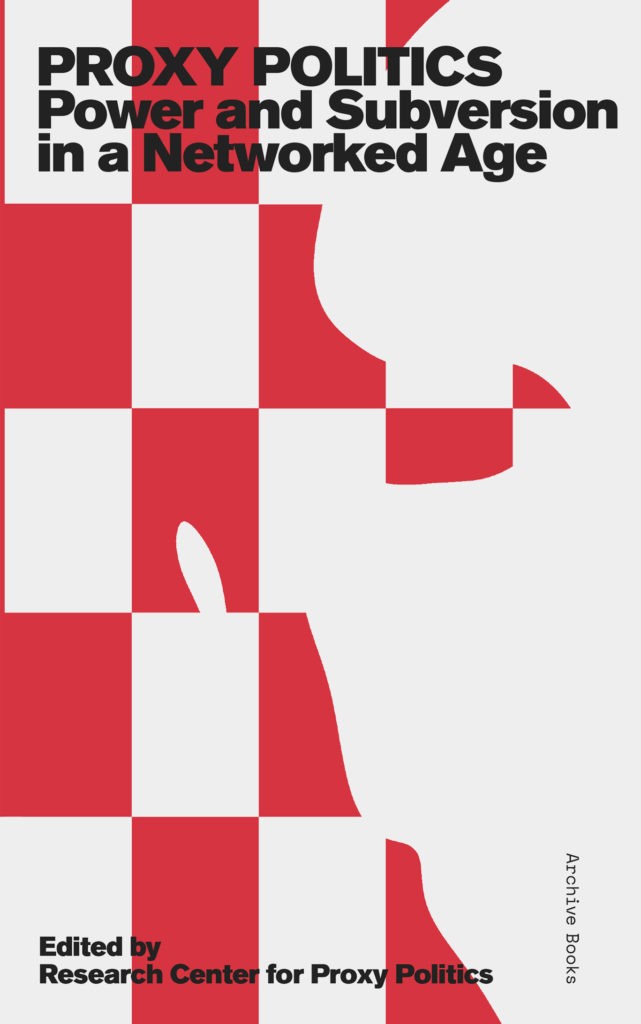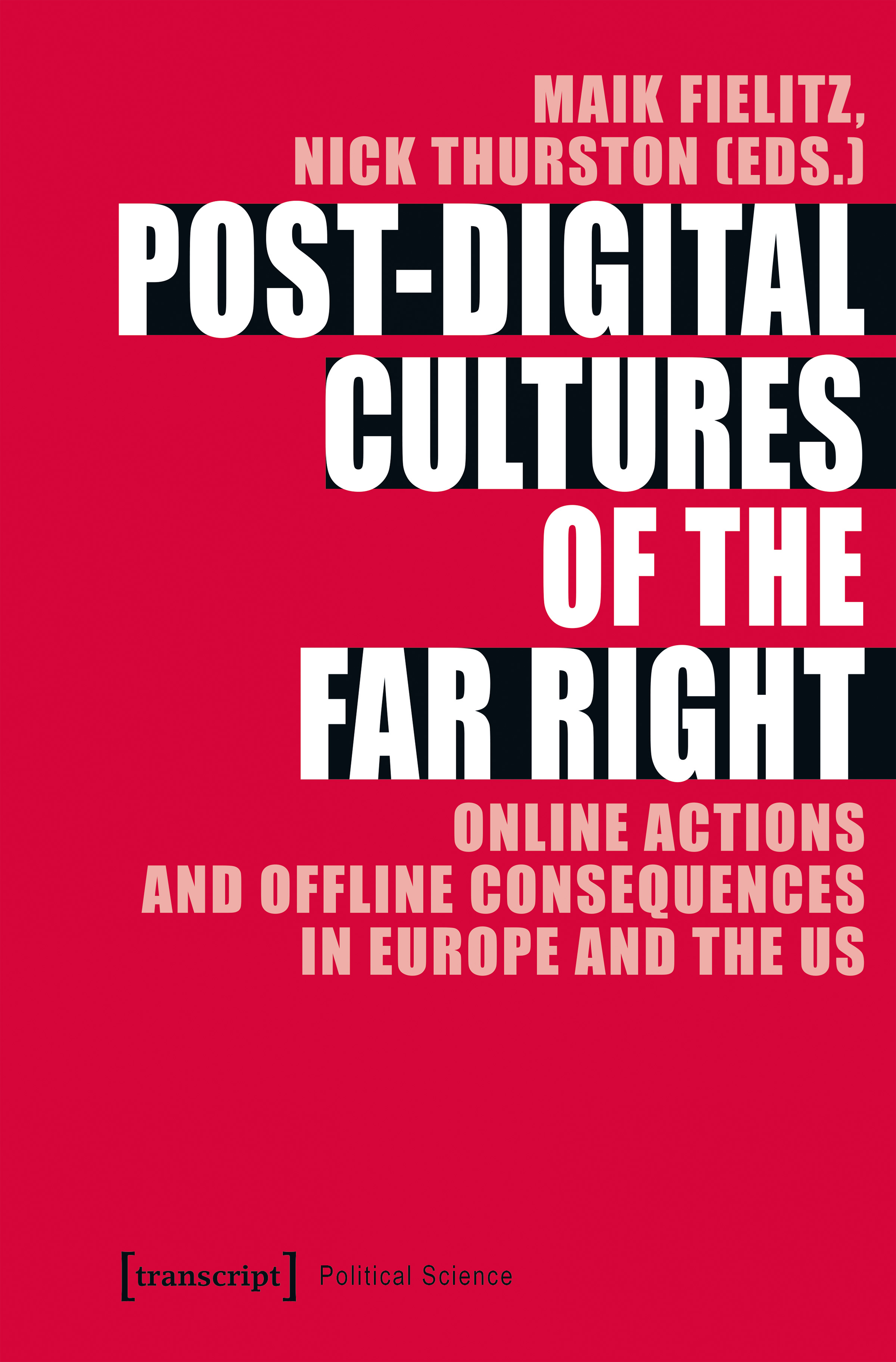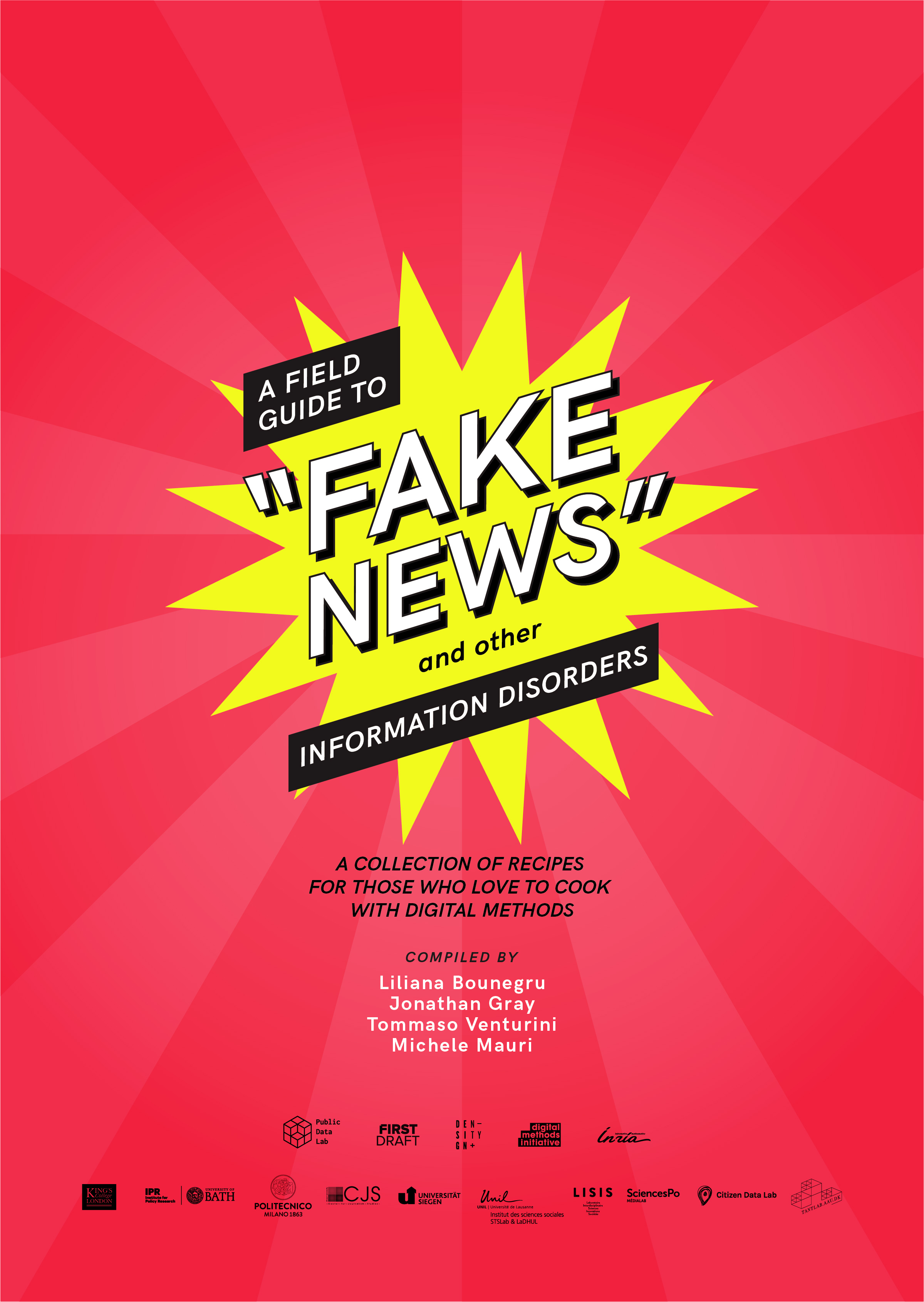Proxy Politics: Power and Subversion in a Networked Age (2017)
Filed under book | Tags: · art, image, internet, media, networks, politics

“The proxy, a decoy or surrogate, is today often used to designate a computer server acting as an intermediary for requests from clients. Originating in the Latin procurator, an agent representing others in a court of law, proxies are now emblematic of a post-democratic political age, one increasingly populated by bot militias, puppet states, and communication relays. Thus, the proxy works as a dialectical figure that is woven into the fabric of networks, where action and stance seem to be masked, calculated and remote-controlled.
This publication looks at proxy-politics on both a micro and a macro level, exploring proxies as objects, as well as networks as objects. What is the relation between the molecular and the planetary? How to fathom the computational regime? Yet, whilst being a manifestation of the networked age, thinking like a proxy offers loopholes and strategies for survival within it.
The Research Center for Proxy Politics (RCPP) explores and reflects upon the nature of medial networks and their actors. Between September 2014 and August 2017, the center hosted workshops, lectures and events at the Universität der Künste, Berlin, under the auspices of Hito Steyerl’s Lens-based class.”
Contributors: Tom McCarthy, Kodwo Eshun, Goldin+Senneby, Brian Holmes, Nick Houde, Jonathan Jung, Laura Katzauer, Boaz Levin, Mikk Madisson, Doreen Mende, Sondra Perry, Oleksiy Radynski, Robert Rapoport, Hito Steyerl, thricedotted, Vera Tollmann, Miloš Trakilović.
Edited by Research Center for Proxy Politics (Vera Tollmann and Boaz Levin)
Publisher Archive Books, Berlin, October 2017
ISBN 3943620719, 9783943620719
256 pages
via catsoup
Editor
Publisher (archived)
WorldCat
PDF (11 MB)
Comment (0)Maik Fielitz, Nick Thurston (eds.): Post-Digital Cultures of the Far Right: Online Actions and Offline Consequences in Europe and the US (2018)
Filed under book | Tags: · alt-right, far right, internet, media, memes, political science, politics, postdigital, social media

“How have digital tools and networks transformed the far right’s strategies and transnational prospects? This volume presents a unique critical survey of the online and offline tactics, symbols and platforms that are strategically remixed by contemporary far-right groups in Europe and the US. It features thirteen accessible essays by an international range of expert scholars, policy advisors and activists who offer informed answers to a number of urgent practical and theoretical questions: How and why has the internet emboldened extreme nationalisms? What counter-cultural approaches should civil societies develop in response?”
Publisher transcript, Bielefeld, 2018
Political Science series, 71
Creative Commons BY-NC-ND 4.0 License
ISBN 9783837646702, 383764670X
208 pages
PDF, PDF (updated on 2023-7-31)
Comment (0)A Field Guide to “Fake News” and Other Information Disorders (2018)
Filed under book | Tags: · deception, fake news, internet, journalism, media, memes, politics, social media, trolling, truth, web

“This guide explores the use of digital methods to study false viral news, political memes, trolling practices and their social life online.
It responds to an increasing demand for understanding the interplay between digital platforms, misleading information, propaganda and viral content practices, and their influence on politics and public life in democratic societies.”
Compiled by Liliana Bounegru, Jonathan Gray, Tommaso Venturini, and Michele Mauri
Publisher Public Data Lab, January 2018
Creative Commons BY 4.0 License
211 pages

